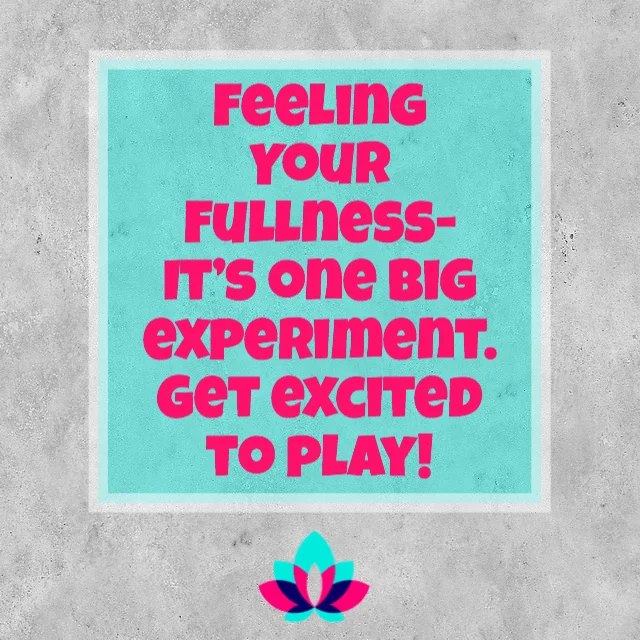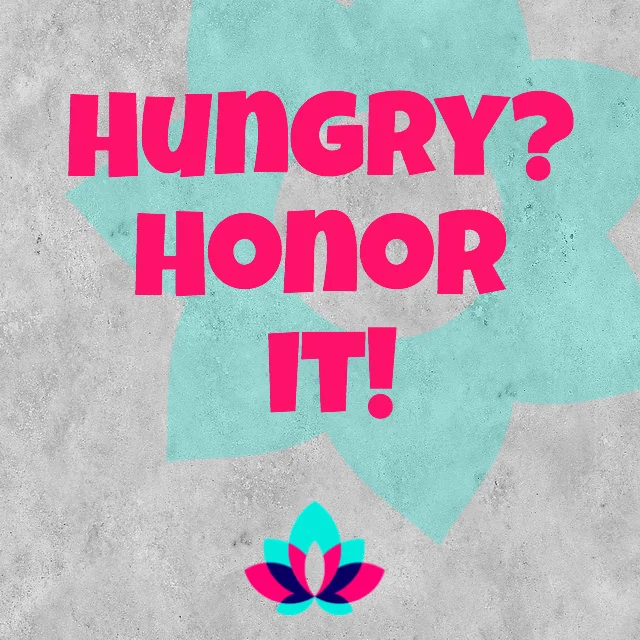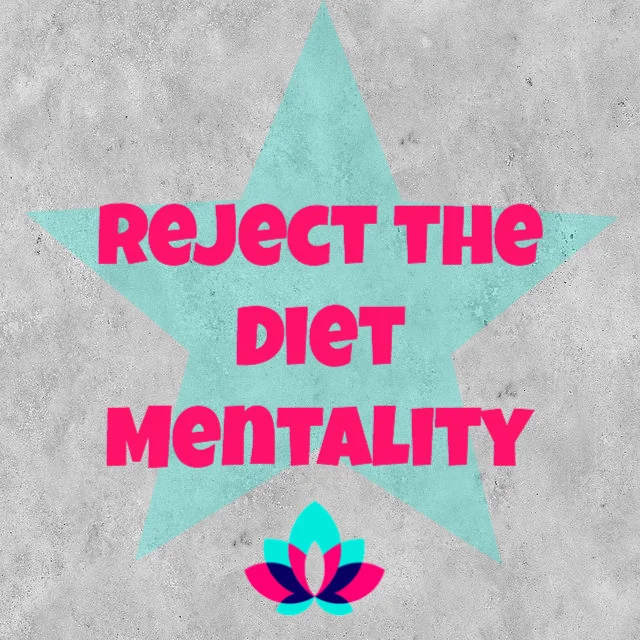Finding Satisfaction with Food
/Honoring our bodies’ cues of hunger and fullness when we eat is a huge part of intuitive eating, but “what and how” you eat can be just as important. Finding satisfaction with food is all about allowing yourself to eat the types of food that you enjoy and an in environment that is pleasing.
Why is satisfaction important?
Dieting tends to create the sense that you can’t be trusted around food. To avoid feeling out of control with food, my clients tend to eat foods that they feel are “healthy” whether or not these foods are truly what they want to eat, they may not even find the foods enjoyable at all. This can lead to deprivation and the desire for more food.
Let’s look at an experiment:
Have you ever really wanted to eat something but told yourself you should not because it wasn’t “healthy?” Say for example you wanted a cupcake at your child’s birthday party but think that’s a NO, NO! Then you find yourself munching on the veggies and dip, and then some crackers, and some of the cheese tray, and some fruit… then you start to feel over full and probably judge that you have eaten so much, after the party is over you pick on all the leftovers as you put the food away… feeling more guilty…. end of they day rolls around and everyone has gone to bed and you end up going in for the leftover cupcakes, eat one, maybe even more than one, after trying all day to avoid them.
What would it have been like if you would have honored your desire for a cupcake in the first place? You may have been satisfied with just one, and you likely would have eaten a lot less throughout the day and never ended up feeling over full and uncomfortable. Instead you spent the whole day trying to satisfy a craving for a cupcake with a whole bunch of food that wasn’t a cupcake. IT DOESN’T WORK!
How do you find satisfaction?
It starts with what you choose to eat. I like to think about the 3 T’s. To determine what you want to eat think about:
Taste – do you want something salty, sweet, sour, bitter, or umami
Texture – do you want something creamy, smooth, crunchy, crumbly, oily, gooey, chunky, thick, thin, dense, light, moist, or dry
Temperature – do you want something hot, cold, or room temperature
Picking from each “T” can help you decide what type of food you want. For example if I am craving something salty, creamy, and hot, I may go for a bowl of chowder. In addition to the 3 Ts, consider variety and appearance as these can impact the satisfaction that we get from our meal and even the nutrition!
The environment in which you eat plays a critical role in the satisfaction of an eating experience.
You don’t have to eat on fancy china with a candlelit table, but eating at your desk while reading through emails is not the best way to truly connect to the pleasure of eating. Consider taking a break from distractions, plating your food in a way that is appealing, and giving yourself the time to savor your food. This can help you connect to your meal and determine if you are actually enjoying the food you are eating. If you aren’t enjoying the food, stop eating it! Find something that may actually be satisfying if you are able.
Life happens – I wouldn’t expect anyone to be able to eat with full attunement 100% of the time. I encourage my clients to do their best with their schedule and what life throws at them. Trying to allow for satisfaction as often as possible can make a huge difference in your overall eating patterns. Sometimes we get stuck in a situation where the only food available is something we don’t enjoy, in this situation you may eat as much as you need to feel full even though it isn’t very satisfying, that’s okay you are still honoring your body by nourishing it! Finding pleasure and satisfaction with food can be a game changer in healing your relationship with food and yourself – give it a try!
Want to connect? Contact me today!








